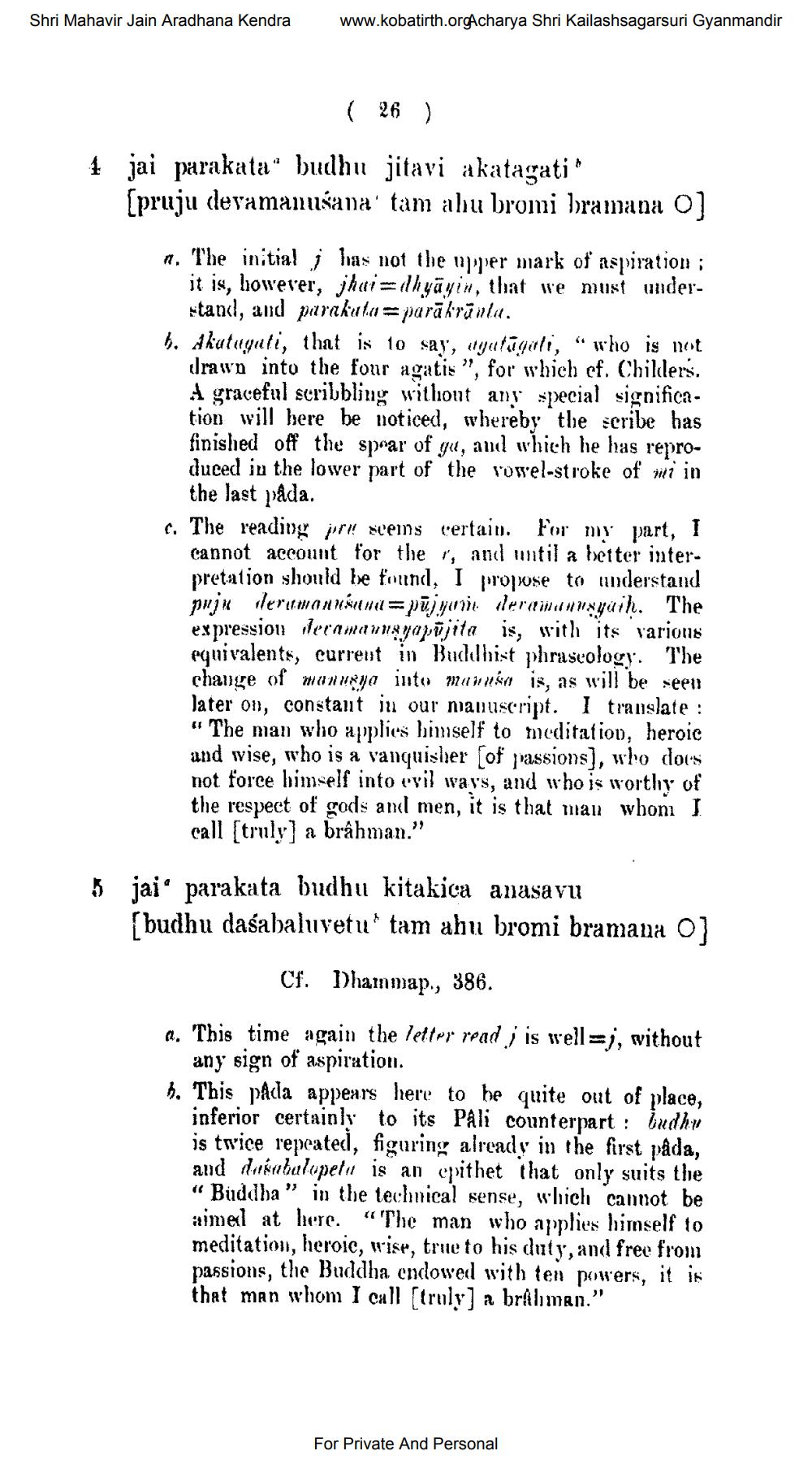________________
Shri Mahavir Jain Aradhana Kendra
www.kobatirth.orgAcharya Shri Kailashsagarsuri Gyanmandir
4
jai parakata“ budhu jitavi akatagati" (pruju devamamuśana' tam ahu bromi bramana 0]
n. The initial ; has not the upper mark of aspiration ;
it is, however, jhai=ihyāyin, that we must under
stand, and parakula=parā krūnla. 6. Sutugali, that is to say, wyatgali, “who is not
drawn into the four agatis", for which ef. Childers. A graceful scribbling without any special significa - tion will here be noticed, whereby the scribe has finished off the spaar of gu, and which he has reproduced in the lower part of the lowel-stroke of mi in
the last påda. c. The l'eadiny jorn! seems certain. For my part, I
cannot account for the i, and until a better interpretation should be found, I propose to understand puju Hermanusunu=püyor vleration wayaih. The expression vlera mannayapūjita is, with its various equivalents, current in Buddhist phraseology. The change of manurya into m usa is, as will be seen later on, constant in our manuscript. I translate : " The man who applies himself to meditation, heroic and wise, who is a vanquisher [of passions), who doc's not force bimself into evil ways, and who is worthy of the respect of gods and men, it is that man whom I call (truly) a brâhman."
5
jaio parakata budhu kitakica anasavu {budhu daśabaluvetu' tam ahu bromi bramana O}
Cf. Dhammap., 386.
a. This time again the letter read, is well=j, without
any sign of aspiration. h. This påda appears here to be quite out of place,
inferior certainly to its PAli counterpart : ludhu is twice repeatedl, figuring already in the first påda, and Nukubalupetu is an epithet that only suits the "Buddha" in the technical sense, which cannot be aimed at here. “The man who applies himself to meditation, heroic, wise, true to his duty, and free from passions, the Buddha endowed with ten powers, it is that man whom I call (truly) a brahman."
For Private And Personal




